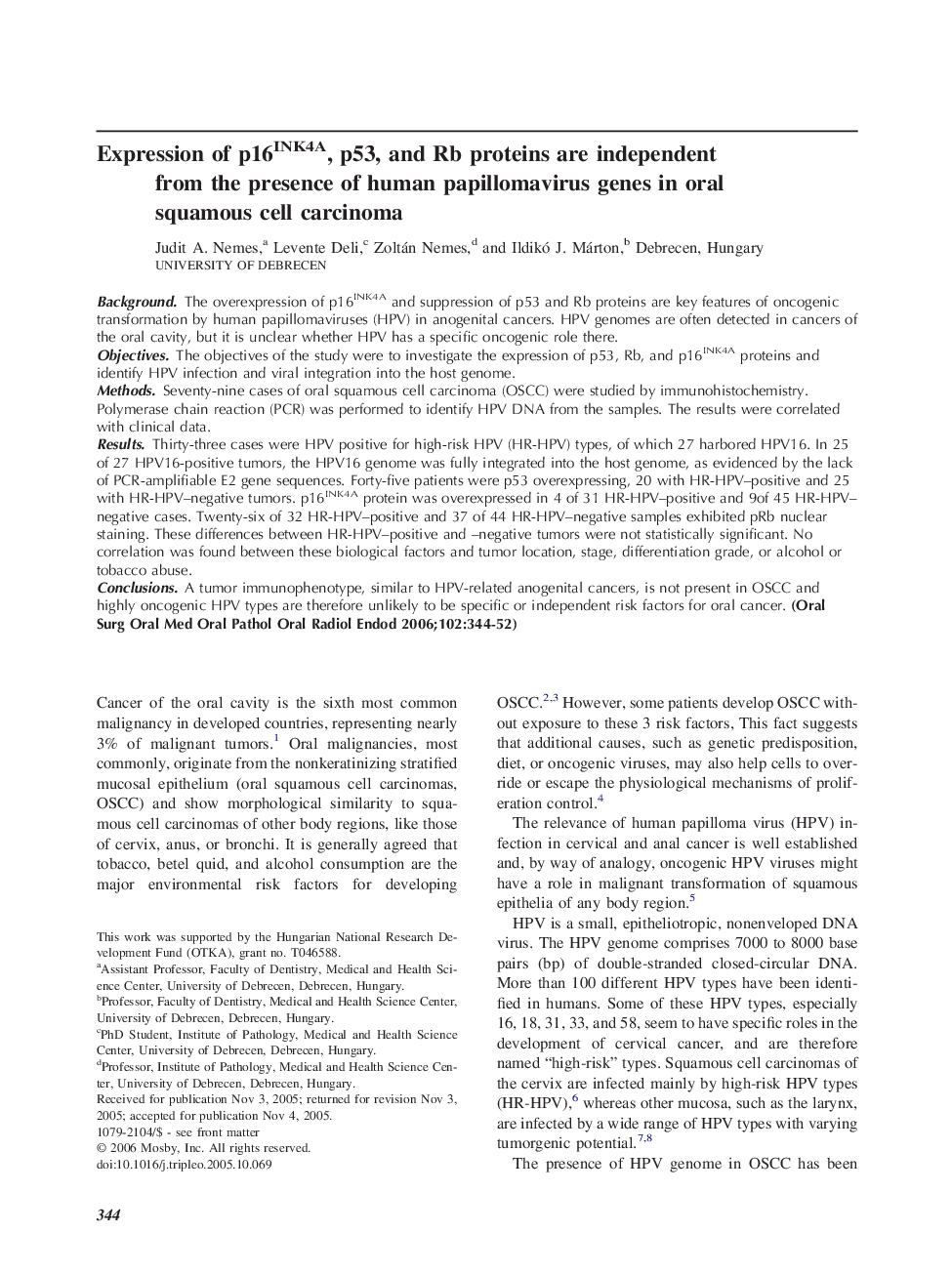| کد مقاله | کد نشریه | سال انتشار | مقاله انگلیسی | نسخه تمام متن |
|---|---|---|---|---|
| 3169922 | 1199499 | 2006 | 9 صفحه PDF | دانلود رایگان |

BackgroundThe overexpression of p16INK4A and suppression of p53 and Rb proteins are key features of oncogenic transformation by human papillomaviruses (HPV) in anogenital cancers. HPV genomes are often detected in cancers of the oral cavity, but it is unclear whether HPV has a specific oncogenic role there.ObjectivesThe objectives of the study were to investigate the expression of p53, Rb, and p16INK4A proteins and identify HPV infection and viral integration into the host genome.MethodsSeventy-nine cases of oral squamous cell carcinoma (OSCC) were studied by immunohistochemistry. Polymerase chain reaction (PCR) was performed to identify HPV DNA from the samples. The results were correlated with clinical data.ResultsThirty-three cases were HPV positive for high-risk HPV (HR-HPV) types, of which 27 harbored HPV16. In 25 of 27 HPV16-positive tumors, the HPV16 genome was fully integrated into the host genome, as evidenced by the lack of PCR-amplifiable E2 gene sequences. Forty-five patients were p53 overexpressing, 20 with HR-HPV–positive and 25 with HR-HPV–negative tumors. p16INK4A protein was overexpressed in 4 of 31 HR-HPV–positive and 9of 45 HR-HPV–negative cases. Twenty-six of 32 HR-HPV–positive and 37 of 44 HR-HPV–negative samples exhibited pRb nuclear staining. These differences between HR-HPV–positive and –negative tumors were not statistically significant. No correlation was found between these biological factors and tumor location, stage, differentiation grade, or alcohol or tobacco abuse.ConclusionsA tumor immunophenotype, similar to HPV-related anogenital cancers, is not present in OSCC and highly oncogenic HPV types are therefore unlikely to be specific or independent risk factors for oral cancer.
Journal: Oral Surgery, Oral Medicine, Oral Pathology, Oral Radiology, and Endodontology - Volume 102, Issue 3, September 2006, Pages 344–352